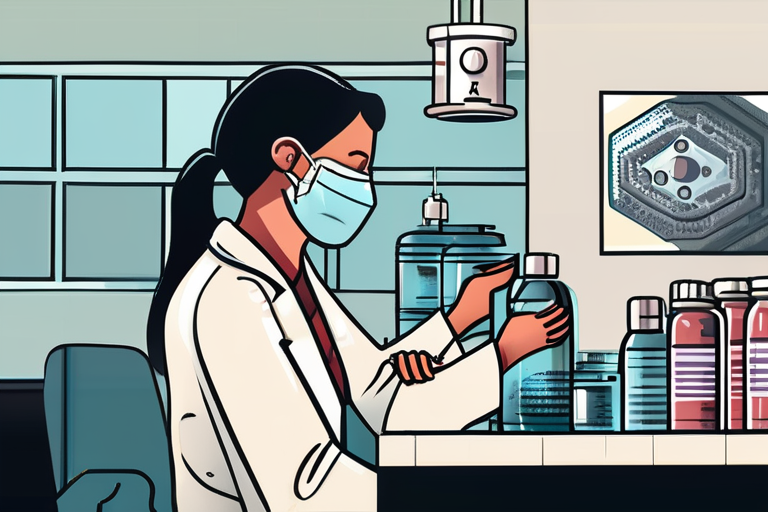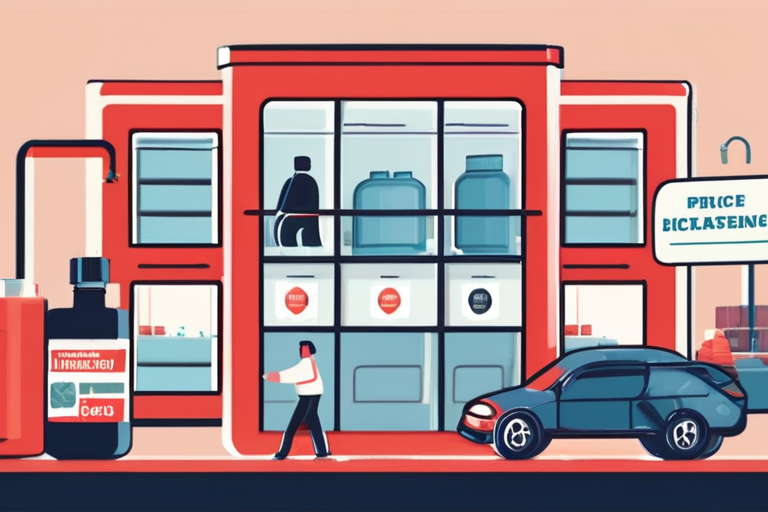Health officials in the United Kingdom are warning that this year's flu season for the Northern Hemisphere is looking particularly rough, with the US not prepared to handle the potential surge in cases. The bleak outlook is driven by a new strain of H3N2, which emerged over the summer sporting several mutations. Those changes are not enough to spark the direst of circumstances, a deadly pandemic, but they could help the virus dodge immune responses, resulting in an outsize number of severe illnesses that could put a significant strain on hospitals and clinics.
According to Jim Mackey, chief executive of NHS England, who became chief executive in April, the UK's flu season has started around five weeks earlier than normal and is making a swift ascent. "There's no doubt this winter will be one of the toughest our staff have ever faced," Mackey told The BMJ. Since stepping into this role, the thought of a long, drawn-out flu season has kept him awake at night. "We're bracing ourselves for a challenging few months ahead," he added.
The UK's flu season has progressed rapidly, with cases increasing exponentially. The UK Health Security Agency (UKHSA) has reported a significant spike in flu cases, with the virus spreading quickly across the country. The agency's data shows that the flu season has started earlier than usual, with cases peaking in mid-October.
The emergence of the new H3N2 strain has raised concerns among health officials, who fear that the virus may be more resistant to current flu vaccines. "The mutations in the H3N2 virus are concerning, as they may make it more difficult for the body to mount an effective immune response," said Dr. Maria Van Kerkhove, a leading expert on influenza at the World Health Organization (WHO). "However, it's essential to note that the current flu vaccines are still effective against the majority of flu cases, but we may need to revisit our vaccine strategies to address this new strain."
Health experts emphasize the importance of getting vaccinated, especially for vulnerable populations such as the elderly, young children, and those with underlying health conditions. "Getting vaccinated is the best way to protect yourself and those around you from the flu," said Dr. Van Kerkhove. "We urge everyone to get vaccinated as soon as possible to reduce the risk of severe illness and hospitalization."
The US Centers for Disease Control and Prevention (CDC) has also sounded the alarm, warning that the country may not be prepared to handle the potential surge in flu cases. "We're concerned about the rapid spread of the H3N2 virus in the UK and its potential impact on the US," said Dr. Rochelle Walensky, CDC director. "We're working closely with our international partners to monitor the situation and prepare for any potential outbreaks."
As the flu season continues to unfold, health officials are urging the public to take precautions to prevent the spread of the virus. This includes getting vaccinated, practicing good hygiene, and staying home when sick. With the potential for a severe flu season looming, it's essential for individuals to take proactive steps to protect themselves and those around them.



























Share & Engage Share
Share this article